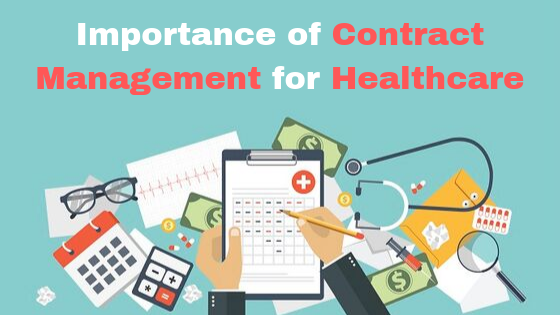Healthcare organizations from the U.S. continue to confront an increasing group of marketplace challenges like increasing insurance and medicine trial expenses, improved regulatory conditions, decreased government spending, mergers and acquisitions, and stress to make a more patient-centric health care encounter.
1 key area which presents a excellent opportunity for advancement is that the digitization and automation of contract management to health care organizations.
In reality, a recent research from Black Book Market Research discovered that health companies spend almost $157 billion every year on guide contract administration.
That is an astonishingly higher figure which has a massive effect on a healthcare provider’s capability to supply value-based care. Because of this, many health care providers are actively exploring and assessing new technologies and alternatives like contract management program to substitute their guide approaches to deal management.
In the end, healthcare-related contracts are just getting more complicated to make, negotiate, implement, and manage during the contract lifecycle. The tough process of handling various physician and support arrangements, together with regulatory compliance criteria like HIPAA, JCAHO, HITECH, along with other federal and state regulations is quite time-consuming and more pricey.
The guide approaches to contract direction that lots of health care providers now use such as shared folders, email, and spreadsheets not merely leads to high prices but also set the organization in danger. That is because they raise the opportunity of contracts being mismanaged, frequently don’t apply and boost compliance, lead to missed deadlines along with other important dates, and also make audit paths difficult to monitor and maintain.
As health care contracts become more complex, the resources to handle them need to maintain pace. It is not unusual for a health care organization to get tens of thousands, if not 10s of thousands of contracts covering a vast array of departments and amenities, involving numerous donors, suppliers, and other parties, and also possibly governing a staggering quantity of trades via multiple clauses and contingencies.
Contract management applications provides a centered and electronic base for contemporary contract management using an integrated set of resources to manage all of the jobs connected with healthcare contract development, negotiation, implementation, and management — such as post-execution rights, duties, and testimonials.
Furthermore, attempting to handle contracts makes it very hard or even impossible to answer common, nevertheless significant, queries such as:
“Where’s your contract I want and is the latest edition?”
“What are the point and standing of All of the contracts with this payer”
“Does this arrangement comprise the newest approved terms and language?”
“What contracts include terms and clauses that pose a greater degree of danger?”
Contract management software provides quick and precise answers to all those questions and much more. By simplifying manual procedures and adopting a cloud-based alternative that is specially constructed for contract management, health care organizations may:
Significantly reduce contract management prices
Boost internal and regulatory compliance and safety
Help enhance the patient encounter
Boost the efficacy of limited health care resources
Reduce legal, fiscal, and new danger
Conclusion:-
Improving contract management to health care organizations ought to be a high priority given that the high prices related to the prevalent manual procedures used now. Ultria is a major supplier of intelligent contract software, and it has worked with several health care organizations to automate and enhance their contract administration.




